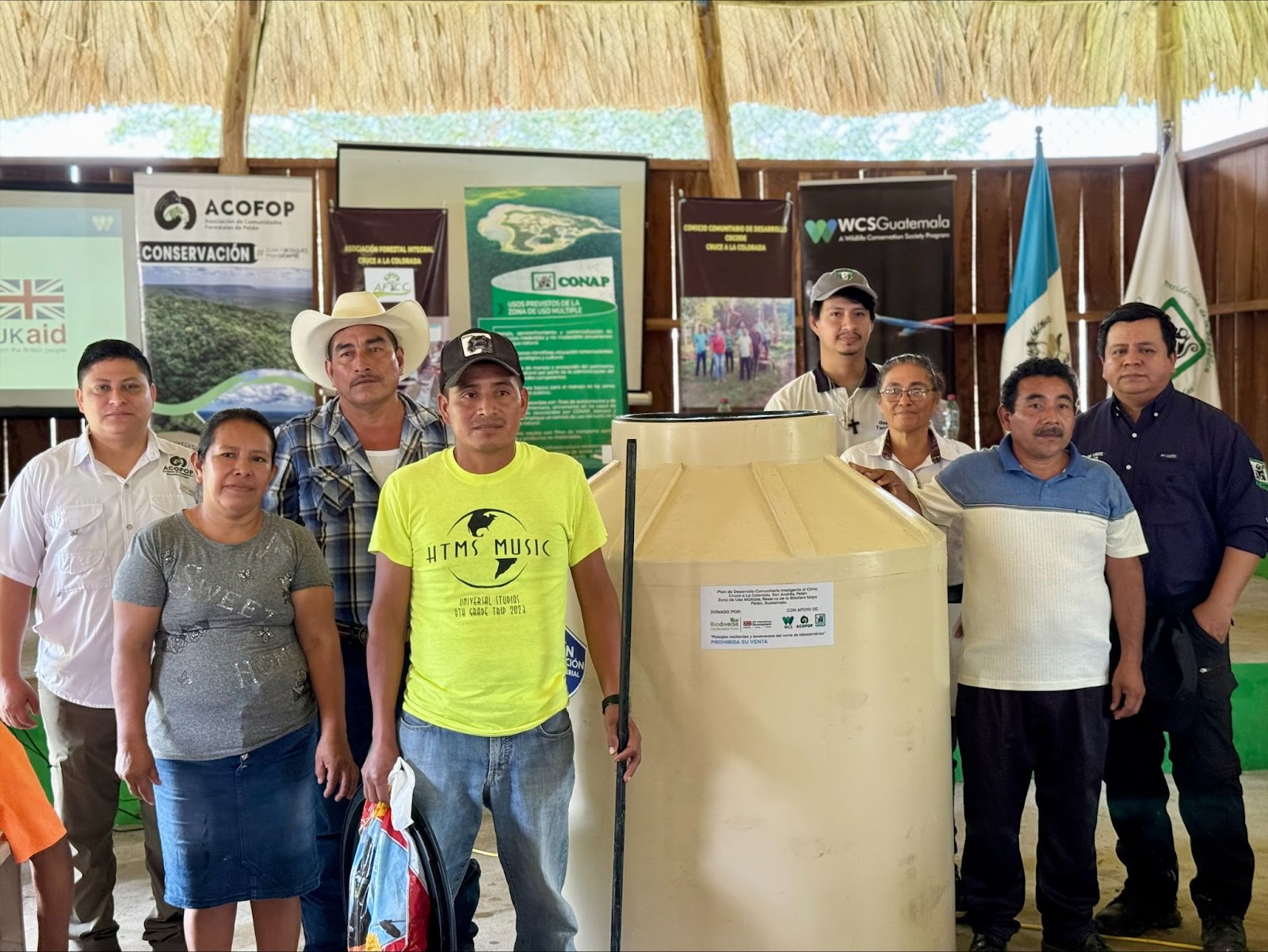Climate change is intensifying heat waves and droughts in Mesoamerica, affecting both human communities and the biodiversity of the Maya Biosphere Reserve (MBR). Rising temperatures and water scarcity worsen living conditions for rural families, increase the risk of forest fires, and endanger ecosystem health.
To address this challenge, and with support from the United Kingdom through the Biodiverse Landscapes Fund (BLF), 108 rainwater collection tanks were distributed to families, schools, and churches in the community of Cruce a La Colorada, located in the Multiple Use Zone of the MBR in the municipality of San Andrés, Petén. This initiative, implemented on January 28, aims to strengthen community resilience to the climate crisis and ensure water access during critical periods.

The initiative arises from a community consensus that identified rainwater harvesting as a priority for human consumption in response to extreme temperatures. It is also part of the Climate-Smart Community Development Plan, designed in collaboration with local authorities such as the Integral Forestry Association of Cruce a La Colorada (AFICC), the Community Development Council (COCODE), the Community Auxiliary Mayor's Office, as well as women's and youth groups. This effort is supported by the technical assistance of Wildlife Conservation Society (WCS) and the Association of Forest Communities of Petén (ACOFOP), with the guidance of the National Council of Protected Areas (CONAP).
Prolonged droughts and increasing forest fires are severely affecting the forests of Petén, endangering wildlife and reducing water sources for local communities. In this context, access to rainwater harvesting systems becomes a key strategy to strengthen climate change adaptation and reduce pressure on natural resources. Through the joint efforts of civil society, communities, and the government, sustainable solutions are being implemented to protect both people and ecosystems within the Maya Biosphere Reserve.
The community members have expressed their deep gratitude to the BLF project, CONAP, and its partners for making this initiative possible, as it will help them face the effects of the climate crisis in their territory.